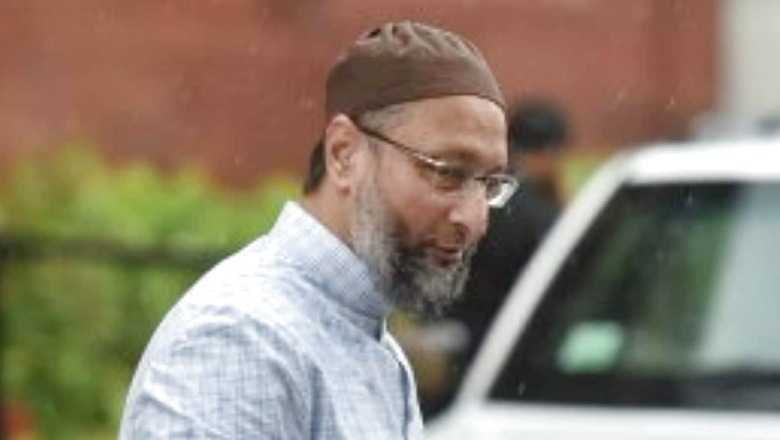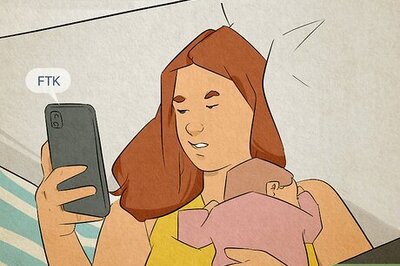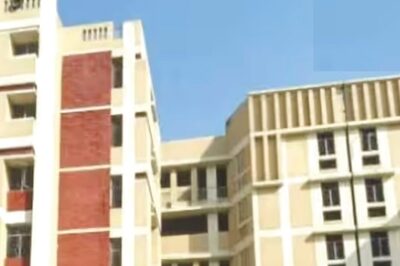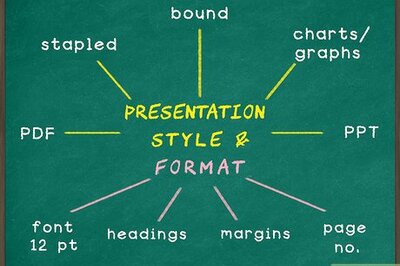
views
AIMIM chief Asaduddin Owaisi has demanded the inclusion of Muslims in the Dalit Bandhu scheme doled out by the TRS government, in which a grant of Rs 10 lakh is being given to Dalit households across the state to empower them economically and socially. Owaisi asked for financial assistance to at least one per cent of Muslim families living in the State below the poverty line.
“Dalit Bandhu is a progressive step. The direct cash transfer will help empower Dalit families to live with dignity and respect, in addition to boosting their livelihood. If abolishing poverty is the main benchmark of the TRS government, then Muslim families living in abject poverty should also be incorporated in the welfare scheme,” he said.
Owaisi backed his demand quoting a recent report published by the Centre for Development Policy and Practice, or CDPP, which pointed out that Muslims in Telangana were more backward and marginalised than SCs and OBCs on many socio-economic indicators.
According to the report titled ‘Muslims in Telangana; Poverty and Other Challenges,’ Muslims constitute 12.7% of the State population of which less than 57% of them have their own houses, while the rest are mostly slum-dwellers.
Statistics have also pointed out that only 20% of Muslims have fixed salaries while the rest make their ends meet by working in the informal sector. A majority of this population is largely dependent on non-agricultural activities. Overall, lack of employment opportunities, housing, access to healthcare and discrimination are some of the factors leading to other problems like high dropout rates among students.
Quoting the suggestions put forth by former IAS officer G Sudhir, Owaisi called for a more inclusive and balanced approach for designing welfare schemes.
“Telangana has nearly 9 lakh Muslim households with an average family size of 5.5. At least 8.5% of families are living in abject poverty, sustaining themselves on a daily income of less than Rs 100. So even if the State government adds 2% of families to the Dalit Bandhu scheme then nearly 18,000 families will be benefitted,” he said.
Reforms suggested by policy experts
Dalit Bandhu promises to cover 11,900 families. If the TRS government accepts Owaisi’s demand then the financial cost of including BPL Muslim families comes up to Rs 1,800 Crore. Public policy experts believe the additional expense won’t burn a hole in the government’s pocket if funds are properly chalked out.
“If one observes closely, the State government will incur an additional expense of just 0.5%. Each year nearly Rs 1,600 crore is allocated as minority welfare funds, half of which is unutilised. If we add up everything then, the total amount will be more than enough to alleviate nearly 18,000 Muslim households from poverty,” said Prof Abdul Shaban of the University of Paris.
Economist and CDPP Research Director Amir Ullah Khan said besides education, there’s a need to empower the marginalised community by giving them assets in the form of capital, land or homes to live in.
“More Muslim families are falling into the poorest of poor category. The situation has been exacerbated in the last two years due to Covid. Telangana can turn into a golden State (Bangaru Telangana) only when its most downtrodden population is uplifted. All they need is one asset to fall back on. This is the most efficient anti-poverty intervention,” he said.
Owaisi’s demand comes in the backdrop of growing clamour from the BJP to implement a similar scheme for the backward class community. Calling Owaisi and KCR two sides of the same coin, senior BJP leader NV Subhash slammed the TRS government for pitting one community against the other for electoral benefits.
“Upper Hindu castes and the BC community have been left out by the KCR government. Muslims are already availing benefits through reservation. We won’t oppose their inclusion in the Dalit Bandhu scheme provided other Hindu groups are also accommodated. We won’t tolerate KCR’s alienation of Hindus,” he said.
Read all the Latest News , Breaking News and Ukraine-Russia War Live Updates here.



















Comments
0 comment